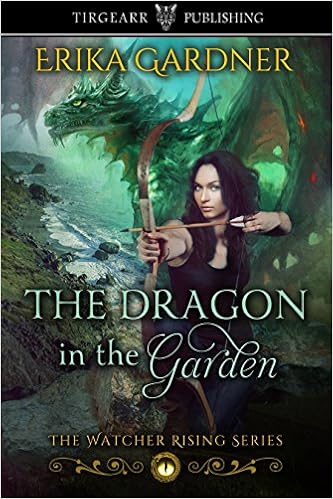Greetings, commies!
With St. Patrick's Day a few weeks away, it's time for another Irish-themed novel. Today's pick is Erika Gardner's fantasy The Dragon in the Garden, recently released via Tirgearr Publishing.
Synopsis:
There is magic beneath the mundane and in The Dragon in the Garden,
Siobhan Orsini witnesses it all. No lie can fool her, no glamour or
illusion can cloud her Sight. She sees through them all and wishes she
could close her eyes. Returning to face her past, Siobhan inherits her
grandparents’ house in California’s wine country. She encounters a
talking dragon, a hot fallen angel, a demon lord, a Valkyrie, and, oh
yes, her ex-boyfriend. And that is just in the first twenty-four hours.
It’s time to find out why she has this power.
Siobhan seeks out the Oracle and learns that only her Sight can help
mankind navigate the travails of an ancient war. Our world is the prize
in a battle between the dragons, who would defend us, and Lucifer’s
fallen angels, who seek to take the Earth for themselves. Using her
gift, she will have to make a choice that will decide humanity’s future.
My thoughts:
With a degree in Medieval History and Biological Science, Erika Gardner is a perfect candidate for writing a fantasy blending mythology and science. The protagonist's name is Siobhan, a tribute to Gardner's Irish ancestors. Superficially hardened by life's trials, Siobhan periodically reverts to her worldview as a wounded five-year old, at times unable to tell the difference between reality and fantasy, which adds psychological authenticity to the narration. Siobhan believes herself to be exceptional, but in reality, I know many lonely women who report similar paranormal experiences.
Interestingly, the release of this novel coincided nicely with the premier of a hit show "Lucifer", chronicling the adventures of the fallen angel on earth after quitting hell. Despite the racy subject matter, the narrative itself is tame and PG-13 for the most part. This could very well be a YA novel, except that the protagonist is in her 20s.
Narrated in the first person, the novel is heavy on dialogue, and that's the tool used for advancing the plot. You will not see many lengthy narrative paragraphs. I take The Dragon in the Garden as a parable of maturing womanhood and attempt to make sense of all-too-common (unfortunately) heartbreaks through the prism of allegoric imagination.

No comments:
Post a Comment